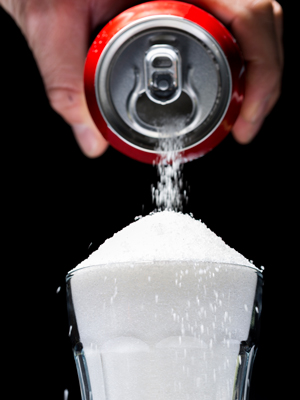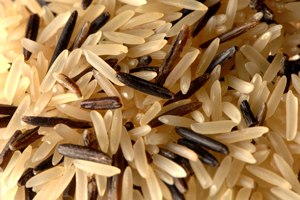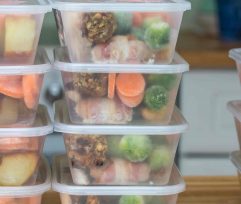Committing to weight loss surgery can be daunting. Before deciding to go under the knife there are many things we can do to improve our condition and possibly get us to a point where we wont need surgery.
Consult your doctor and request blood tests.
 Make sure you inquire about thyroid function, fbc, electrolytes, testosterone, progesterone (females only) , estrogen, chromium, vanadium and magnesium. Trace mineral deficiencies of chromium and vanadium may contribute to sugar cravings and low magnesium levels might be the reason why you crave chocolate. By correcting these deficiencies you may be able to stop the cravings and reduce your weight significantly. Hormone imbalances can also contribute to weight gain. By balancing out your hormones, you could increase the speed of your metabolism. In those cases you may not need as a drastic a surgery, or a surgery at all to lose the weight you need to look and feel good.
Make sure you inquire about thyroid function, fbc, electrolytes, testosterone, progesterone (females only) , estrogen, chromium, vanadium and magnesium. Trace mineral deficiencies of chromium and vanadium may contribute to sugar cravings and low magnesium levels might be the reason why you crave chocolate. By correcting these deficiencies you may be able to stop the cravings and reduce your weight significantly. Hormone imbalances can also contribute to weight gain. By balancing out your hormones, you could increase the speed of your metabolism. In those cases you may not need as a drastic a surgery, or a surgery at all to lose the weight you need to look and feel good.
Consult your psychologist and/or a dietitian about your eating habits.
 More often than not it’s not ‘what’ we eat but ‘why’ we eat that causes the most weight gain. Anxiety, depression, stress and other personal issues may contribute to you eating certain foods or even worse, eating them in excess. It’s a type of “self-medication” for your mental health. Some people might turn to chocolate to feel better, others might drown in pizza and a couple of pounds of ice cream nightly. If patients can find the underlying cause of their eating habits and treat those mental anguishes, they might be able to achieve their desired weight loss without surgery.
More often than not it’s not ‘what’ we eat but ‘why’ we eat that causes the most weight gain. Anxiety, depression, stress and other personal issues may contribute to you eating certain foods or even worse, eating them in excess. It’s a type of “self-medication” for your mental health. Some people might turn to chocolate to feel better, others might drown in pizza and a couple of pounds of ice cream nightly. If patients can find the underlying cause of their eating habits and treat those mental anguishes, they might be able to achieve their desired weight loss without surgery.
Stop eating red meat and dairy based foods like cream, chocolate, deserts and cake.
It is widely documented that red meat is linked to the occurrence of cancer and it is often associated with an unhealthy lifestyle. You may not realize it but finding truly lean red meat with low fat is difficult. Generally it’s pretty fatty. So are dairy based goods. If you try cutting out these food groups you will be automatically cutting out a large amount of fat from your diet. Worth a try right?
Stop eating deep fried food / fast foods.
These kind of foods are packed with saturated fats and sugar, which play a significant role in weight gain. Ever decided to have one french fry and somehow you end up eating the entire plate? That’s no accident. Deep fried foods are designed to make you want more. By giving up that first french fry, you stand to give up the entire plate. Before you know it, you have cut hundreds of thousands of empty calories out of your diet.
Stop drinking sweet sodas or purified juices.
 These drinks are full of sugar and you may not realize it, but they overload the liver—drinks other than alcoholic ones can do that too! An overloaded liver in turn stimulates your pancreas to release insulin (a hormone). What does that mean? It means that large amounts of insulin are then released into circulation, which is used to store the excess sugar as fat. So by cutting out soda, you are significantly reducing the amount of fat that is being stored in your body. And we haven’t even gotten to drinking diet soda’s. Those drinks expose your body to an entirely new set of chemicals that have different lasting effects. It is possible though, that the high sodium levels in those drinks can also lead to weight gain.
These drinks are full of sugar and you may not realize it, but they overload the liver—drinks other than alcoholic ones can do that too! An overloaded liver in turn stimulates your pancreas to release insulin (a hormone). What does that mean? It means that large amounts of insulin are then released into circulation, which is used to store the excess sugar as fat. So by cutting out soda, you are significantly reducing the amount of fat that is being stored in your body. And we haven’t even gotten to drinking diet soda’s. Those drinks expose your body to an entirely new set of chemicals that have different lasting effects. It is possible though, that the high sodium levels in those drinks can also lead to weight gain.
Reduce carb loads by eating less “white stuff” like bread, pasta, pizza, white rice and added sugar.
You may not realize it, but a lot of carbohydrates are processed and stored in our bodies the same way that sugars are. If you can decrease the amount of ‘white’ carbohydrates you consume, you might find your weight will decrease also, because the amount of fat stored has also decreased. There’s a reason why pizza every day is discouraged… excess carbohydrates are quickly converted to fat and stored in the body.
Eat complex carbohydrates.
 As much as there are carbs that we should stay away from, there are also carbs that benefit our system greatly. Foods like wild rice, pumpernickel bread and sweet potatoes are all complex carbohydrates that are not stored instantly in your system as fats. Salads, fruits and vegetables are also included in this group of healthy carbs. These kind of foods precipitate a different hormonal responses by your gastrointestinal system to plain white carbs. This is because the liver does not react the same way to complex carbohydrates as it does to simple sugars. Complex carbohydrates are also more filling and have a much smaller fat storage ratio.
As much as there are carbs that we should stay away from, there are also carbs that benefit our system greatly. Foods like wild rice, pumpernickel bread and sweet potatoes are all complex carbohydrates that are not stored instantly in your system as fats. Salads, fruits and vegetables are also included in this group of healthy carbs. These kind of foods precipitate a different hormonal responses by your gastrointestinal system to plain white carbs. This is because the liver does not react the same way to complex carbohydrates as it does to simple sugars. Complex carbohydrates are also more filling and have a much smaller fat storage ratio.
Snack and eat more than three times a day.
A lot of diets encourage eating a small meal every two to three hours. The meals don’t have to be complicated. Try snacking on fruit, nuts and protein shakes or bars. Frequent meals mean your metabolism starts working faster and you start burning food at a higher rate. You’re also less likely to eat large volumes if you eat more regularly and feel full.
Wait when you are eating, once you start feeling full and before you are really really full.
At this point wait a few minutes before eating more. This will reduce your total caloric intake. The brain has a delay for when it tells you “I’m full.” You can also try “fast days” two days a week. A fast day is when you stick to a strict zero carb, fat and minimal caloric intake. This will allow you to have more “cheat” meals on the other five days. Theoretically fast days shock your body. If you’re constantly eating a certain way, your body “adapts” and it may become harder for you to maintain your weight.
Exercise: Aim to increase your heart rate above 100 Bpm (of course only if you do not have a heart condition) for at least 20 mins each day. Fitness isn’t really achieved without increasing your heart rate and fat doesn’t metabolize until you have exercised for at least 20 minutes. So start moving and get your heart rate going! This however, is probably worth about 25% of your weight loss program.




